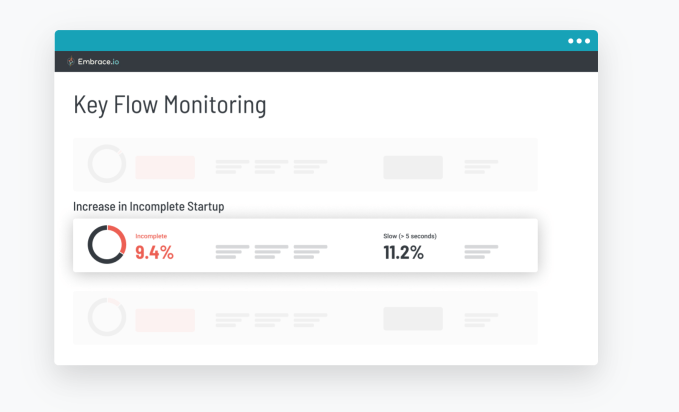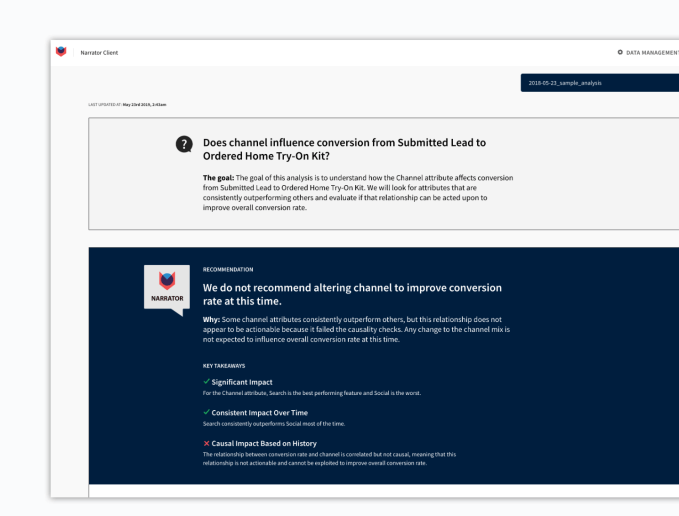After two days of founders tirelessly pitching, we’ve reached the end of YC’s Summer 2019 Demo Days. TechCrunch witnessed more than 160 on-the-record startup pitches coming out of Y Combinator, spanning healthcare, B2B services, augmented reality and life-extending.
The full list is worth a gander, you can read about the 84 startups from Day 1 and the 82 companies from Day 2 in the linked posts. You can also check out our votes for the best of the best from day 1.
After conferring on the dozens of startups we saw yesterday, here are our favorites from the second day of Y Combinator pitches.

Vendr
We now need a SaaS company to manage all of our SaaS subscriptions. Purchasing software is a broken system, in that different customers pay different prices for the same software. Vendr created a self-serve process to help companies purchase, renew and manage their software subscriptions. They’re targeting high-growth early-stage companies as their first customers in what they say is a $10 billion market.
Why it’s one of our favorites: Startups are more dependent than ever on sophisticated SaaS subscriptions to keep them running, but the process of managing, renewing and negotiating a dozen different SaaS products can eat up quite a bit of time. Vendr’s service could let companies separate themselves from the confusion and outsource just one more thing.

Khabri app
Khabri
The podcast platform wave has washed over plenty of internet-immersed markets, but platforms like Apple Podcasts and Spotify lack traction in India. Many users are stuck with YouTube audio but Khabri is looking to build up a network of exclusive podcasts with 2,500 creators. The team already has 60,000 DAUs who use the app an average of 20 minutes per day.
Why it’s one of our favorites: Podcast platforms have had a long presence at YC, but there’s been more consolidation after Spotify went on a shopping spree this year. Smartphone habits have evolved uniquely in India but if Khabri can get the right types of creators onboard they could fill a sizable void in the country where a dedicated heavyweight has failed to emerge.

ReverCare
This company has created a platform for helping people care for their aging parents. ReverCare connects families to social workers, who in turn connect them to eldercare services and help with senior living and care logistics. The company says they are going after a $13 billion market.
Why it’s one of our favorites: Eldercare has gotten far too little attention in the startup world. Creating a one-stop-shop for families to learn about their options that isn’t a meandering series of stress-inducing Google searches is a great spot to start. There are tons of startups in every batch building high tech tools for the enterprise, virtual reality platforms or consumer games, all of which tend to have a finite market, no matter how large. Caring for sick or elderly family members is a universal problem that needs solving.

Business Score
Business Score is helping companies automate background checks on other businesses. The startup is looking to stamp out tired manual processes that largely mean picking up the phone and scouring documents. The single API taps data sources across the web to build out real-time profiles that can help customers scan businesses in an effort to prevent fraud, qualify leads and onboard new clients.
Why it’s one of our favorites: Though it’s yet another startup in the batch catering to other startup, we thought Business Score stood out. The company integrates with thousands of data providers to help companies verify other startups and enterprises they are considering doing business with, using a system they’ve dubbed “the business passport.” There’s an opportunity here to create a tool essential to company-building across industry.

Embrace
Designed to help developers push better code, Embrace makes it easy for mobile developers to identify bad code and fix bugs faster. Already, companies like Wish, Goat, OkCupid, Headspace and Boxed use Embrace. The company has grown to $1 million in annual recurring revenue.
Why it’s one of our favorites: If you thought the age of software heavyweights failing to pay attention to mobile was over, you’re just wrong. Embrace solves an evergreen problem of identifying bad code, but with a total focus on mobile deployments. The fragmentation in this space suggests that existing solutions aren’t getting the job done and some of Embrace’s early customers signify how high up that problem goes.

This map from Berkeley Earth tracks climate temperature changes since 1990.
Wren
This green tech startup helps people take action against climate change. Here’s how it works: users sign up on Wren and begin tracking their carbon footprint. Then, the company plants trees to make up for its users’ carbon footprint on a monthly basis. The company launched two months ago and has recently launched Wren as an employee benefit.
Why it’s one of our favorites: Carbon footprint offsets are commonplace in the corporate world, but for consumers they’re largely existed as one-offs that guilted people can make after watching a nature documentary. Wren’s subscription service could help people stay more mindful about their personal role and impact in the climate change crisis. Plus, this was of very, very few companies going after the most important issue of our time.

Narrator
Narrator is a full-service data team for startups of any size. The team behind Narrator built WeWork’s data infrastructure, and wants to target more startups as early customers. The company says they’re generating $91,000 per month with this business model, but they aren’t stopping there. Narrator wants to build as a cross-company universal standard for data and grow out this library of shared analyses. This strategy allows the company to repurpose the data they produce and offer it to new customers.
Why it’s one of our favorites: The Narrator team holds all the ingredients to success. For starters, they’re all alums of WeWork, where their chief executive officer spent years building the co-working giant’s data team and data infrastructure. Plus, like many of the most successful YC graduates, they’re a startup catering to other startups. Narrator hopes to become the operating system for data science, selling data science as a service to other high growth companies in need of a coherent, streamline system for organizing and leveraging their data.

Hey Healthcare
More and more Americans are gaining insurance coverage for mental health services, but nearly half of therapist offices don’t take insurance, according to the team at Hey Healthcare, which is building automated medical billing software for therapists. The startup helps therapists get registered and bill insurers, they have already helped process $100K in insurance claims with early customers.
Why it’s one of our favorites: As the mental health services market balloons and insurance companies get on board, it’s probably a good idea to get the therapists in the fold as well. Addressing the paperwork and added processes associated with taking insurance could solve pain points that are holding some therapists back from taking the plunge. We expected to see more mental health startups vying for venture capital investment in the summer batch; Hey Healthcare turned out to be one of a handful.

Vouch
Vouch provides business insurance to startups because “bad things happen to good startups,” the founder explained. Using Vouch, the insurance process starts at $200 per year which is apparently much cheaper than most products available on the market. Vouch also has risk management tools so companies can focus on company-building. Vouch has launched in Utah and will be in 10 states by the end of the year.
Why it’s one of our favorites: Catastrophic events are common territory for startups brashly trying to break into new categories, a business insurance company specifically focused on startup needs and risks has the potential to get some attention in the popular startup services category. Brex has had record-breaking success through the sale of its credit card for startup, we think Vouch could travel down the same path.

Tandem
Tandem is a virtual office for remote teams that lets people see who is online, what they’re working on and who is available to talk. The software takes a Discord-like approach to letting users see what work apps their co-workers are in. Currently, Tandem has more than 450 active teams using the product and is seeing 50% weekly growth. Already, companies like Airbnb, Spotify, Dropbox and WeWork use Tandem.
Why it’s one of our favorites: The “consumerization of enterprise” is the buzzphrase du jour, but stealing interface elements from tween and teen apps like Houseparty and Discord for a teams app is crazy smart and shows just how much creative thinking there is left to be had. Given the current success of companies building tools for the modern workforce, plus the millions in backing Tandem attracted before even making its demo day pitch, we’re pretty confident it’s on the right track.

Gmelius
Gmelius is a Gmail tool built to help teams manage projects, operate a help desk and automate daily processes. The team aims to replace Mailchimp, Asana, Trello, Zendex and many more by integrating with your Gmail inbox. Gmelius currently has 100,000 daily active users taking with $180,000 of monthly recurring revenue.
Why it’s one of our favorites: Gmelius lives inside Gmail so teams can feel like they’re just upgrading a piece of software they already use rather than adding yet another piece of team management software to the SaaS rolodex. We like the interface and the pro tools that integrate so closely with the inbox, we think it has some compelling features to take users away from YC graduate Front and and score users that were reticent to revamp their email workflow.

Coco
Most money transferred from Venezuelan migrants back to their families goes toward food. Coco allows Venezuelan migrants to send food home rather than money. Coco says it is already making $10,000 in monthly revenue. The startup partners with mini markets to make food purchases and takes a 20% cut of their sales, allowing a commission-free outcome for customers. Coco’s founding team built the first bitcoin exchange in Venezuela.
Why it’s one of our favorites: FinTech startups tackling remittance have been popular for years but Coco’s team is melding the model with the economics of grocery delivery startups. We think it’s a solution that has major potential and the idea represents one of many YC-backed startups this batch focused on business opportunities in Latin America.
Those are some of our favorites from day 2 of Y Combinator’s S19 Demo Days, here are the rest of the startups that presented.
